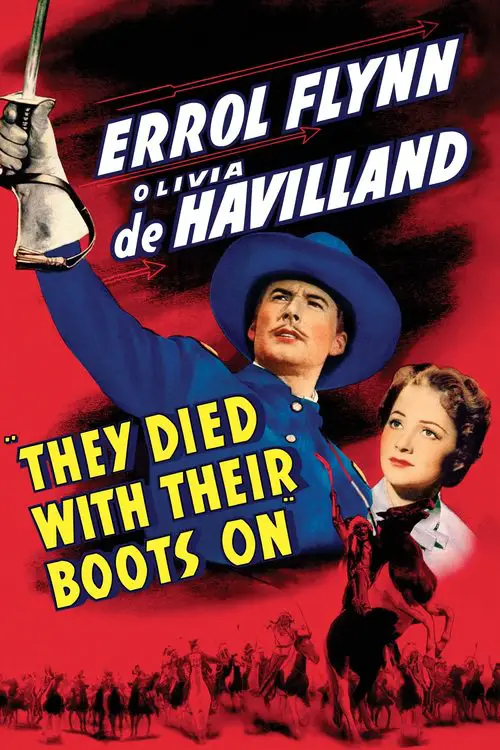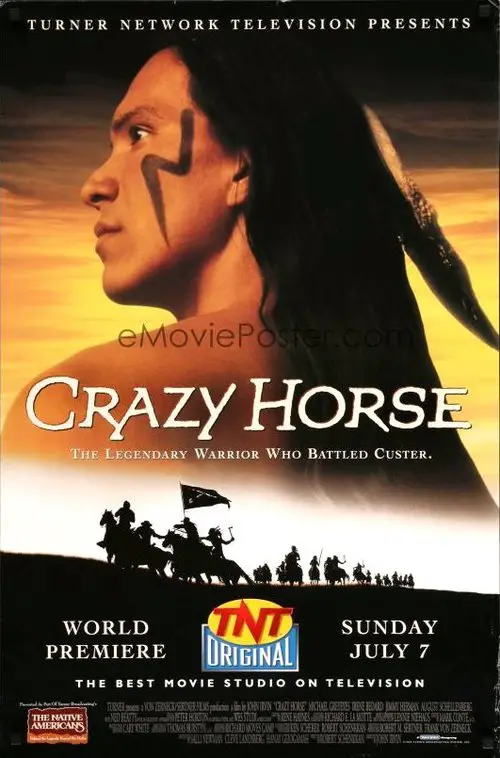Custer of the West (1967)

Similar movies
Beginning just after the bloody Sioux victory over General Custer at Little Big Horn, the story is told through two unique perspectives: Charles Eastman, a young, white-educated Sioux doctor held up as living proof of the alleged success of assimilation, and Sitting Bull the proud Lakota chief whose tribe won the American Indiansâ last major victory at Little Big Horn.
A highly stylized surreal farce about the events leading up to Custer's Last Stand anachronistically reenacted in an urban renewal area in modern Paris.
Director Mario Fererri reenacts the events leading up to the Battle of the Little Big Horn in this wild, highly stylized surreal farce set in and around a gaping excavation for a huge urban renewal project in 1974 Paris. The anachronistic backdrop highlights the incongruity of the broad comic characterizations of real life figures George Armstrong Custer, Sitting Bull, and Buffalo Bill.
As a penalty for fighting fellow classmates days before graduating from West Point, J.E.B. Stuart, George Armstrong Custer and four friends are assigned to the 2nd Cavalry, stationed at Fort Leavenworth. While there they aid in the capture and execution of the abolitionist, John Brown following the Battle of Harper's Ferry.
Warpath is a 1951 film directed by Byron Haskin. It stars Edmond O'Brien, Polly Bergen and Dean Jagger. John Vickers has spent eight years hunting for the three men who murdered the woman he loved. He finds one, Woodson, and kills him in a gunfight, but not before learning that the other two men have joined the U.S. Cavalry.
Chief Sitting Bull of the Sioux tribe is forced by the Indian-hating General Custer to react with violence, resulting in the famous Last Stand at Little Bighorn. Parrish, a friend to the Sioux, tries to prevent the bloodshed, but is court- martialed for "collaborating" with the enemy. Sitting Bull, however, manages to intercede with President Grant on Parrish's behalf. Written by Jim Beaver
In John Ford's sombre exploration the mythology of American heroes, he slowly reveals the character of Owen Thursday, who sees his new posting to the desolate Fort Apache as a chance to claim the military honour which he believes is rightfully his. Arrogant, obsessed with military form and ultimately self-destructive, Thursday attempts to destroy the Apache chief Cochise after luring him across the border from Mexico, against the advice of his subordinates.
Young Indian man Thomas is a nerd in his reservation, wearing oversize glasses and telling everyone stories no-one wants to hear. His parents died in a fire in 1976, and Thomas was saved by Arnold. Arnold soon left his family, and Victor hasn't seen his father for 10 years. When Victor hears Arnold has died, Thomas offers him funding for the trip to get Arnold's remains
Hapless museum night watchman Larry Daley must help his living, breathing exhibit friends out of a pickle now that they've been transferred to the archives at the Smithsonian Institution. Larry's (mis)adventures this time include close encounters with Amelia Earhart, Abe Lincoln and Ivan the Terrible.
In Dakota territory in the 1870s, White Bull, a young Sioux, proves his manhood by catching and training a wild colt he names Tonka. When a cruel cousin claims the horse as the privilege of rank, White Bull lets Tonka go. The horse ends up in the hands of a captain in the US cavalry about the time that Sitting Bull gathers the tribes to confront the growing US presence, epitomized by the bigoted General Custer. All paths, including those of White Bull and Tonka, lead to the confluence of the Little and Big Horn rivers.
© Valossa 2015–2026
| Privacy Policy



















